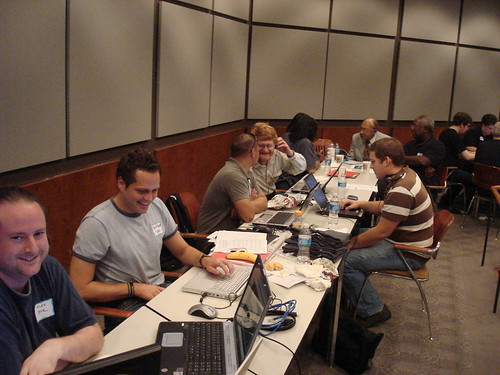 I’m looking for employees, consultants and volunteers at charities and NGOs based in the European Union to comment on any or all of the following three (3) subjects, based on their own observations or experience. Various people at one organization can comment, since different people at any one organization may have different perspectives. The identity of anyone who responds, and that of any organization a respondent represents, will be kept anonymous in any published material that might include that person’s comments unless that person gives express written consent otherwise.
I’m looking for employees, consultants and volunteers at charities and NGOs based in the European Union to comment on any or all of the following three (3) subjects, based on their own observations or experience. Various people at one organization can comment, since different people at any one organization may have different perspectives. The identity of anyone who responds, and that of any organization a respondent represents, will be kept anonymous in any published material that might include that person’s comments unless that person gives express written consent otherwise.
If you are an employee, consultant or volunteer at a charity or NGO based in the EU, I welcome you to comment on any or all of the following three subjects, in a direct email to me at jc@coyotecommunications.com or, if you want your identity and comments to be fully public, in the comments section of this blog:
(1) The lack of widely-available online volunteering work in the EU, compared to, say, the USA, may include:
- lack of support at charities, NGOs and other organizations for the engagement of volunteers (online or off); support includes staffing, knowledge and funding
- lack of understanding regarding the value of volunteer engagement, in general (not just online) for a charity or NGO
- lack of awareness or understanding regarding online volunteering
- lack of availability of online tools at charities, NGOs and other organizations for the engagement of online volunteers (many organizations have prohibitions instituted by senior management or the IT department with regard to using social media, VOiP technologies like Skype, or cloud-based platforms)
Do you agree? Disagree? Have comments?
(2) For organizations based in the EU that are involving volunteers online in any way (this can include volunteers from outside the EU):
- Why did your organization start involving volunteers online?
- What did you have to do or change at your organization to start involving volunteers online?
- How have you evaluated the impact of the work of online volunteers at your organization (and if you have not evaluated the impact, why not?)
- Have any of the volunteers who have contributed to your organization somehow online said that their online volunteering experience lead to paid work, to their greater employability or to career advancement?
(3) Obstacles to leveraging online volunteering work into greater employability/career advancement in the EU may include:
- lack of available online volunteering work
- lack of awareness of this type of volunteering among those seeking/needing employment
- perceptions among potential employers regarding the value of volunteering, online or onsite, for application to paid work (“it’s just volunteering” or “you were just volunteering, rather than really working”)
Do you agree? Do you think these factors might affect this as well:
- lack of computer or Internet access?
- lack of basic skills needed to engage as a volunteer online?
- lack of literacy?
If you are based in the EU and work for an organization based in the EU, as a paid employee, consultant or volunteer, and this organization involves volunteers online in any way, and you have any comments or questions on the aforementioned three subjects, I would welcome your response. The identity of anyone who responds, and that of any organization a respondent represents, will be kept anonymous in any published material that might include that person’s comments unless that person gives express written consent otherwise. If you are an employee, consultant or volunteer at a charity or NGO based in the EU, I welcome you to comment on any or all of the following three subjects, in a direct email to me at jc@coyotecommunications.com or, if you want your identity and comments to be fully public, in the comments section of this blog.
Why am I asking? Because I am working on a research project for the EU for the next several weeks. The project is called the ICT4EMPL Future Work project, and I am contacting various organizations based in the EU, or that have offices in the EU, and that I know, or strongly suspect, involve online volunteers. I define online volunteers as people who do some or all of their volunteering (unpaid service) for an organization via the Internet, via a computer, smart phone or tablet they are using from home, work, school, or elsewhere offsite from the organization. The online volunteers that your organization involves do not all have to be in the EU.
My part of this research is to explore the state of play of internet-mediated volunteering: virtual volunteering, microvolunteering, crowd-sourced labour, crowdfunding, internet-mediated volunteering, internet-mediated work exchange (timebanks and complementary currency), etc., with regard to developing entrepreneurship and self employment, skills and social inclusion, and transition from education to employment for young people in the European Union.
I have a wiki that details this research project.
To stay updated about this project:
- “Like” my Facebook fan page
- Follow me on Twitter: @jcravens42
- Subscribe to my Tech4Impact email newsletter
- Follow Me on GooglePlus




